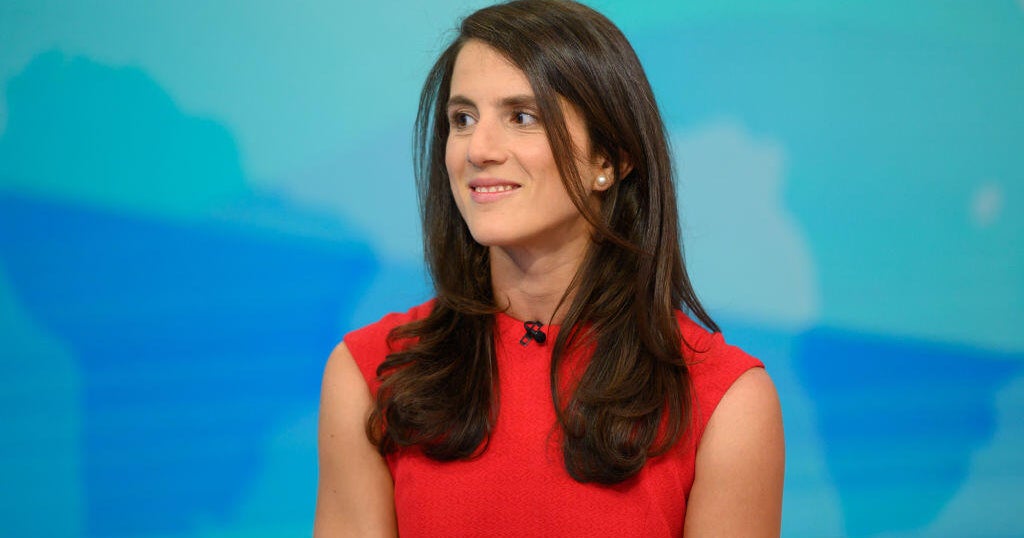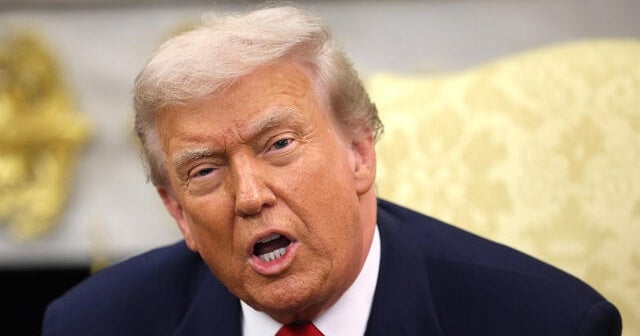I have always been deeply sceptical of claims – repeated with metronomic regularity before every election – that Australia’s two-party system is breaking down. The last federal election was supposed to see a Greens breakthrough. They lost all but one seat. The teals were breathlessly proclaimed as heralds of “a new politics”. (Yawn.) Their numbers remained static: gained one (maybe), lost one. Labor emerged stronger than it has ever been. While the result was a catastrophe for the Coalition, the votes the opposition bled went to the government.
The twin guardrails of compulsory and preferential voting raise the barriers to minor parties and insurgents and protect us from the extremes of left and right. Although our politics sometimes seem fraught, among the democracies Australia is a model of stability.

Well may he laugh: Reform leader Nigel Farage’s party stands to attract the biggest block of votes at the next election.Credit: Matthew Horwood/Getty Images
The story is very different elsewhere, where the franchise is exercised under different voting methods. Recent European elections have seen upheavals across the continent, with established postwar parties displaced by new political movements led by charismatic disruptors such as Emmanuel Macron in France, Giorgia Meloni in Italy and Geert Wilders in the Netherlands.
In Britain, a similar fragmentation of the major parties is increasingly evident – originally on the right, but now on the left as well. Although Labour won a smashing victory only a year ago, every major opinion poll finds it would now lose its majority. An average of the 10 leading polls, published on the government’s first anniversary, put the Reform party of Brexit leader Nigel Farage ahead with 28.4 per cent. Labour has sunk to 23.9 per cent, while the Tories languish on a derisory 18 per cent. Although it won only five seats last year, Reform’s surging support since puts it on the verge of a breakthrough.
Farage is a charismatic populist: a champion of nostalgic patriotism, scourge of political correctness and skilful practitioner of the politics of grievance. His rhetoric is heavily laced with racial dog-whistling. As a communicator, he leaves Keir Starmer for dead.
Loading
Reform has already eaten deeply into the Conservative Party’s electoral base. Now Farage is targeting Labour. With a Tory recovery nowhere in sight, Starmer and Farage have both declared that the next election will be fought between Labour and Reform. Former prime minister David Cameron has been saying privately that he expects Reform to win more seats than the Conservatives.
The strategically vital constituency in British politics today is no longer the middle class, but the old industrial working class, particularly in the north of England. These people – older, poorer, marginalised – were once rock-solid Labour. Captured by Boris Johnson in 2019 – they are staunch Brexiteers – they came home to Labour last year. Now, they are stampeding to Farage. His bloke-in-the-pub persona cuts through with them as surely as Starmer, the preachy human rights barrister from north London, does not.
The growing belief among establishment conservatives that Farage is more likely than the Tories to win a large swath of seats from Labour has changed their attitude towards him. While his crude populism still leaves them cold as they despair at their own party’s weakness, they increasingly see Reform as the only feasible pathway to ousting Starmer.
One long-time Tory donor whom I know – a prosperous landowner and master of his local hunt, no less – told me in London recently that if Reform came up with a serious economic policy, he’d probably switch. There are many like him: bred-in-the-bone Conservatives, in mortal fear of Labour’s punitive property taxes and desperate that it not win a second term. When the denizens of the gentlemen’s clubs of St James’s are prepared to hold their noses and throw their support behind Farage, the Tories are in even deeper trouble than their disastrous election result suggests.
Loading
Meanwhile, disillusionment with Starmer is causing fragmentation on the left. It erupted with the recent resignation of a Labour backbencher, Zarah Sultana, to form a new socialist party with the former leader Jeremy Corbyn. The new party – “Your Party” – was launched last Thursday. Its manifesto demands “a mass redistribution of wealth and power”, promising “a new kind of political party … rooted in communities, trade unions and social movements”. One of its main causes will be “the genocide in Gaza”.
Corbyn hopes to splinter the left as Farage has shattered the right. He still commands a big following on the far left, mesmerised by his aura as a socialist prophet. The unapologetic antisemitism within the Labour Party under his leadership makes him popular among large sections of the Muslim community – until now a key Labour constituency. Opinion polls suggest a new party to Labour’s left could take 10 per cent off its vote (which, in Britain’s first-past-the-post system, would not come back as preferences).
A fortnight ago, after a backbench revolt by 47 MPs forced Starmer to abandon cuts to welfare entitlements, he withdrew the Labour whip from the ringleaders (which means exclusion from the parliamentary party). This brisk discipline against four political nobodies – “putting a bit of stick about” as the House of Cards villain Francis Urquhart would have said – raised few eyebrows.
But then, the following day, Starmer shocked the political world by withdrawing the whip from Diane Abbott. Abbott is a major figure in the Labour Party with a huge following among its activists: the first black woman elected to parliament (in 1987) and now the Mother of the House of Commons, former shadow home secretary, comrade-in-arms of Corbyn and beloved icon of the British left.
Starmer’s decision to sack her was as horrifying to the party faithful as was Boris Johnson’s decision in 2019 to withdraw the Tory whip from Winston Churchill – grandson and namesake of the great man. Abbott is hardly a Churchill, but she too has a powerful iconography: for years, she has been Labour’s highest-profile black politician and an important role model for women in a male-dominated party. (Tory leader Kemi Badenoch is also a black woman – the party’s second consecutive leader from an ethnic minority and the fourth woman. Labour is only ever led by white men.) It remains to be seen whether Abbott will join forces with Corbyn.
The next UK election is years away. But at the moment, despair among Conservatives and the left’s disillusionment with Starmer are making the prospect of any party holding a majority in the next parliament look increasingly unlikely. The only beneficiary will be Nigel Farage.
George Brandis is a former high commissioner to the UK, and a former Liberal senator and federal attorney-general. He is a professor at the ANU’s National Security College.
Most Viewed in World
Loading


















































